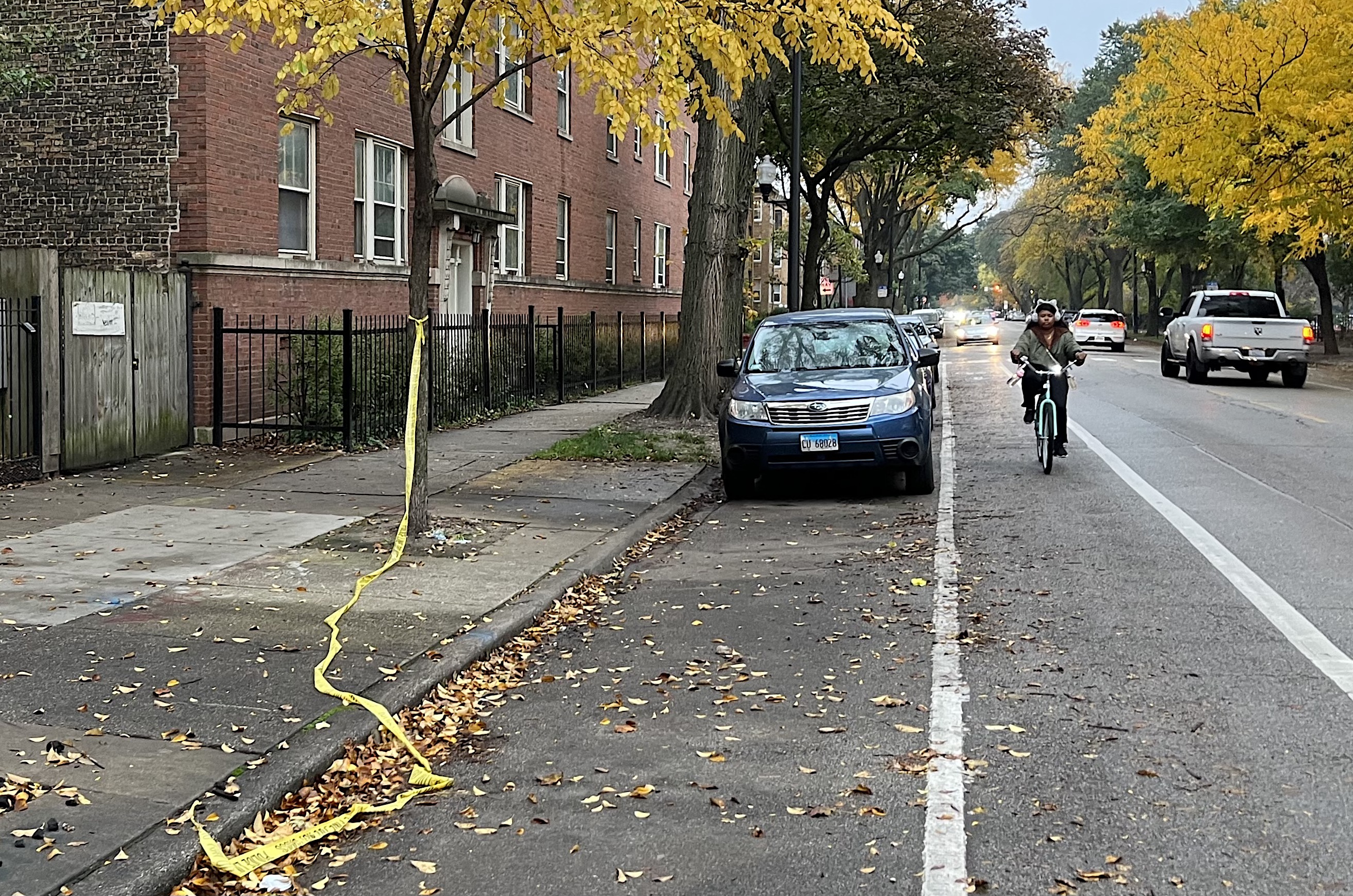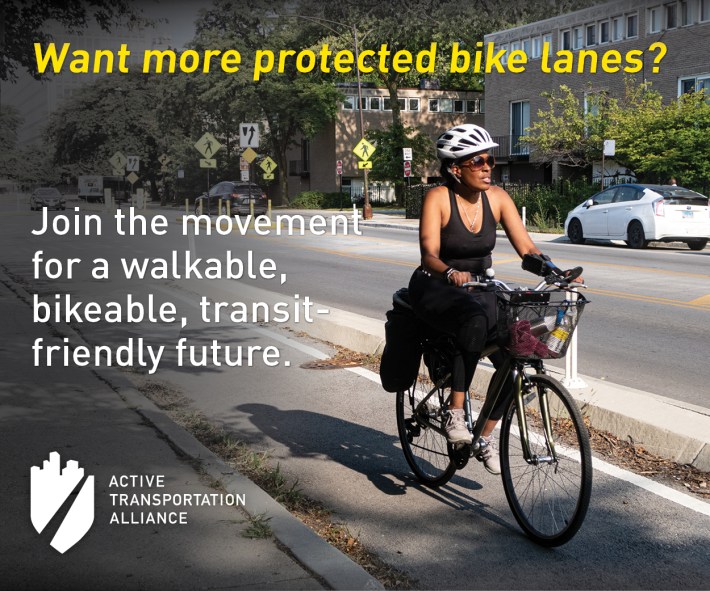
Data from other cities indicates that if Chicago lowered our default speed limit from 30 mph to 25, it would greatly reduce the number of serious and fatal traffic crashes. But, sadly, last month the City Council voted 28 to 21 against the lifesaving legislation, which was sponsored by Committee on Pedestrian and Traffic Safety Chair Ald. Daniel La Spata (1st).
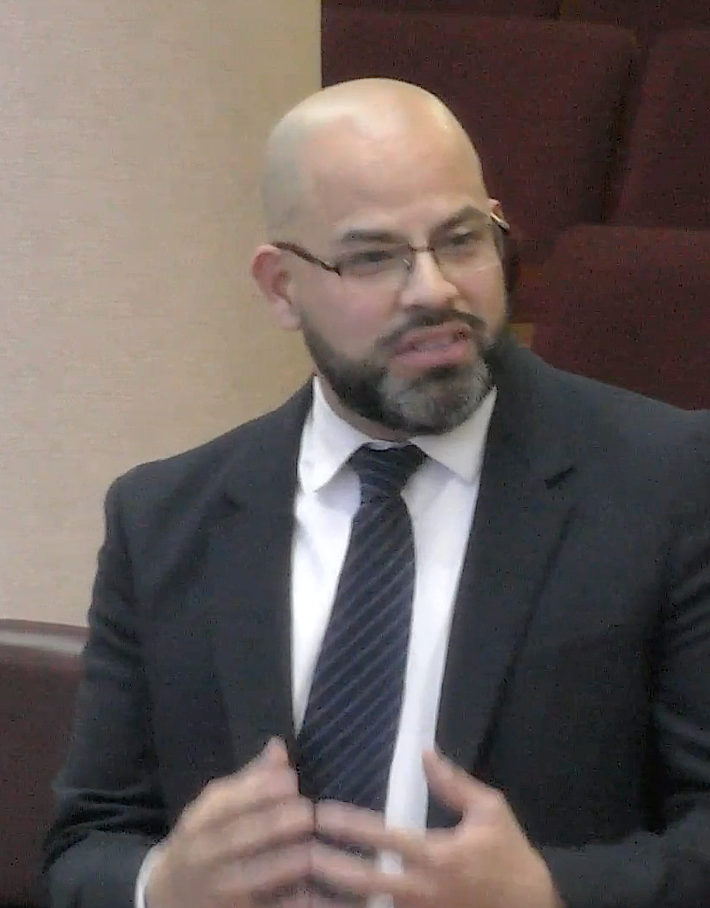
Ald. La Spata had previously reported to his colleagues that New York City and Boston saw major safety improvements after implementing lower speed limits, but did not see a spike in traffic enforcement or ticketing. But during the discussion before the vote, some alders asserted that the 25 mph speed limit in Chicago would result in more policing of and/or fines for lower-income drivers and motorists of color.
During that conversation, Ald. Andre Vasquez (40th) acknowledged that was a valid concern, but said there's more consider when it comes to economic and racial fairness. "What we don't talk about when we talk about equity is who's also disproportionately impacted by traffic crashes and [drivers] hitting people," said. "Two to three times more are Black people and people of color. We want to talk about the impact financially. Medical bills sure don't help some people survive and pay their bills, but we don't think about those things."
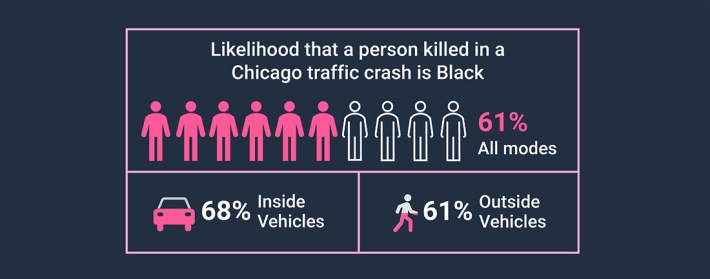
Ald. Vasquez didn't completely agree with Streetsblog Chicago's approach to covering the issue. Read about his objection to one my articles about the vote here.
But that difference of opinions seems to be water under the bridge, since we're both on the same page about the need for lower speed limits and less carnage on our roads. He graciously sat down with me last week at his ward office in West Ridge to share his thoughts on how to get the ordinance passed in the future. The interview has been edited for clarity and brevity.
Why Ald. Vasquez supports a 25 mph speed limit
John Greenfield: Ald. Vasquez, you were one of the most outspoken advocates for lowering Chicago’s default speed limit to 25 mph before the vote took place February 19. Can you tell me more about why this is such an important issue to you?
Ald. Vasquez: It's pretty clear that there are a lot better safety outcomes when you lower the speed limit. You get fewer fatalities, you get fewer people being injured, you get fewer vehicles being damaged. There's a lot of benefit to slowing down. And also looking at other cities, the fact that we are still an outlier, and we've seen other cities are doing it, helps to validate that it makes sense to go in that direction.
His thoughts on concerns about a speed limit change
JG: Some of the opponents to the ordinance cited concerns that it would lead to more pretextual stops by police officers using speeding as justification for pulling over drivers of color to search for guns and drugs, which could potentially escalate to violence.
And some of the opponents argued that the change in the speed limit would lead to more traffic tickets issued, whether by the police or by traffic cameras, to drivers of color, many of whom are lower-income residents for whom the fines could be a financial hardship.
What do you think about those concerns?
AV: I think they're valid. So the concerns we heard were, one was, we can't enforce the speed limit now – what's going to happen if we lower it by five? About the stops, with CPD pulling people over if they're speeding, and who they'd more likely to pull over. About the impacts of tickets based on income. For the cost of the signage – we already budget issues. Those are very valid issues that we've got to look at, and there's different ways to address them.
So when we're talking about stops, realizing that we really want camera enforcement as opposed to [police] stops might be the way to address it. When it comes to inequity, there's a number of ways to look at it. One, would the cameras be spread equitably across town, or they not. That's a fair question to look into.
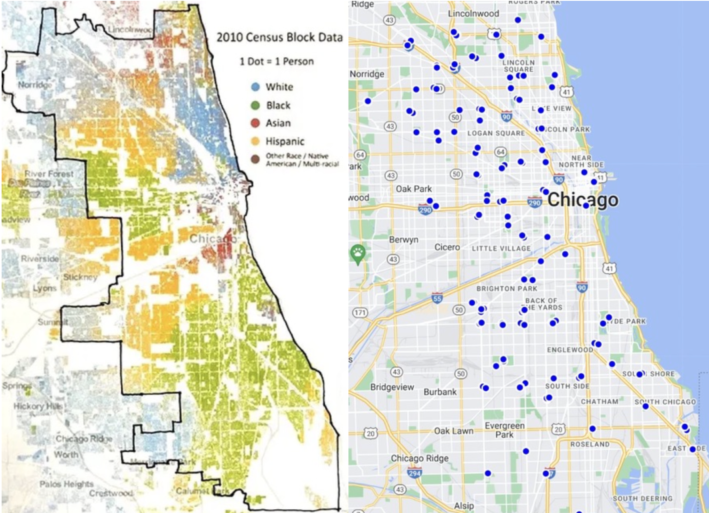
Second is the impact of a ticket. If you make less, it has a larger impact. There are ways to model your ticketing and your fines – we actually looked at it our first year of offices – other countries do it where it's based on your self-reported income, as a percentage of that impact.
The signage question I think is a fair one, unless you find out for sure, unless we find out for sure that the state is willing to take on that cost.
And then the enforcement itself happening or not happening, I think, is pretty clear that enforcement does happen. But more tracking and data helps answer that question.

Want to help ensure Streetsblog Chicago can keep publishing articles like this for another year? Please consider making a tax-deductible gift here. Thanks!
He'd support reinstating the income-based fine discount
JG: So here are a couple of ideas I'd like to float by you and see what you think of them.
AV: Sure.
JG: Back in January 2022, a couple of reports came out that showed a high percentage of people of color were getting ticketed for speeding and red lights. And so as a response to that, [then-] Mayor Lori Lightfoot introduced a 50 percent discount on traffic fines for lower-income residents. That was called the Clear Path program and it was a pilot. But recently a City official told me that it is no longer in effect. So what do you think about restoring that? Has there been any talk of that? Were you even aware that that program existed?
AV: I remember the Clear Path program. I don't remember it retiring, or conversations coming up in City Council about it. I think it's one way to address it, but then you get to the situation where you're removing it or adding it as it's occurring. Which is why we've always thought that if you do it based on someone's self-reported income, as a percentage of income, then you better find how much people should pay. There are ways to do that that end up being net neutral, so you're not losing funds, because people who are making more pay more, and people who are making less pay less, but it's still the same percentage of their overall income.
He supports bringing back the 10 mph ticketing threshold
JG: OK, so you'd be in favor of income-based fines. What about this idea? In New York City, the speed limit is already 25 mph citywide and they're going to be lowering it to 20 in Lower Manhattan. But they're currently at 25 mph with a 10 mph ticketing threshold. So if you're speeding at 35 mph in New York, you don't get ticketed. If you go 36, then you get ticketed.

So that's the way that it is in Chicago now, that if you're speeding by 35, you don't get ticketed, because while we've only got a 5 mph threshold, our speed limit is 30.
AV: So you're saying that you'd do a tradeoff in Chicago. If the speed limit goes down to 25, then you'd raise the threshold 10 mph. I think that is a good compromise that could get you there.
JG: What that would mean is people wouldn't be more likely to get ticketed, even if they don't pay any attention the 25 mph speed limit chance.
AV: Yeah, what that would mean is, you're starting to change the culture around speed. But in effect you're not going to get penalized if you stay at the same [35 mph] speed you were at before the change. I think that's a path that we could go down that might get more support.
JG: And then the benefits of doing that would be that, if all the signs said 25, then people who are more law-abiding would be closer to following the letter of the law.
AV: Right, that was the answer said that we currently don't enforce that much. But what's clear is that if you lower the signs it actually has that effect.
JG: Exactly. And then there's things that you have to figure out, like how fast could you get away with going in a 20 mph school zone?
AV: I think you'd keep that as is, but also make everything else the way you were saying.
The path forward for passing the 25 mph speed limit
JG: OK. So what are the next steps in the effort to get the ordinance passed? It seems like we're kind of at a deadlock right now.
AV: Worse than a deadlock. We were better off before the thing failed.
JG: Ah. So maybe we should have held off on the vote?
AV: Yeah. You don't put up anything for a vote if the votes aren't there. You don't put out a meal if you haven't fully cooked it. And so for that to have come up prior I think was a real problem. Because I believe what should have occured was hearing out those different objections work. I would have put people with those objections into the working group, and then worked to address those, so that people were more comfortable. And then come out of that with support, ad then pass it.
I think because the vote came up first, it kind of undermined it, because that was the other objection: Hey, I thought we voted on a working group. We haven't even met yet, so why is this coming up for a vote?
JG: Come to think of it, that was a surprise.
AV: I think it was a little premature. So now what we have to do is, in some regard start at square one. You've got to focus on all the pushback, and take the time to really hear them out, by the way we address those issues, which is the right way to do it anyway. And you really have to focus on that to get enough support.
JG: And it seemed like there were a few alders who were on the fence, like Ald. Ruth Cruz (30th). She actually co-sponsored the ordinance and she voted against it. That was kind of strange.
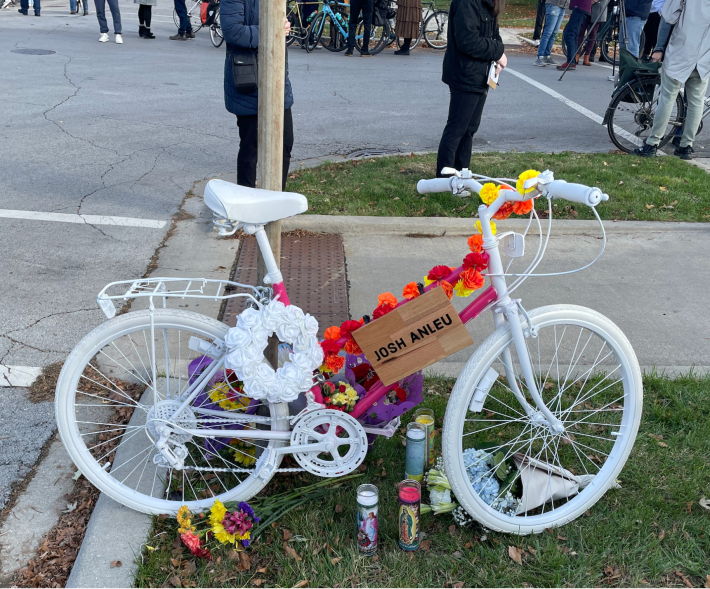
AV: Well, that was because there weren't answers to the questions. If you've got those four to five different concerns, and they're not being answered, you're going to have an issue. You saw something similar with the Bring Chicago Home ordinance for example [legislation that would have raised the tax on home purchases over $1 million to fund homeless services] when you look at the voters. If they're saying, show us what you're going to do with the money, and we're not answering those questions, then when they don't vote in support you can't blame them if they made it clear they needed answers to their questions.
JG: So you're saying the next step is definitely a working group?
AV: Yeah, if you include the folks whose objections we're listing. You bring them into the group. And you one-by-one figure out how to work though that. Then you end up with 26, 27, 28, 30 votes, and that way you get to something that you can pass.

Did you appreciate this post? Streetsblog Chicago is currently fundraising to help cover our 2025-26 budget. If you appreciate our reporting and advocacy on local sustainable transportation issues, please consider making a tax-deductible donation here. Thank you.
